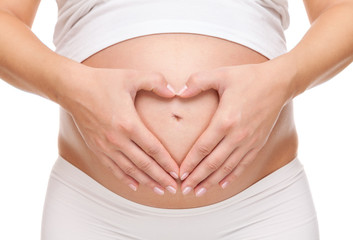 17 Jun 2020
17 Jun 2020 There is an old saying that you should expect to lose a tooth for every baby born which is more a myth than the truth. Women generally complain that the baby has taken calcium from their teeth and has caused holes in the teeth. This is not true. Although there can be problems for teeth and gums during pregnancy, a baby taking calcium from their mother’s teeth is far from true. A baby can take calcium from their mother’s bones but certainly not from teeth.
For bone strength, it is essential to include calcium-rich foods in your diet during pregnancy and breastfeeding. However, be reassured that babies do not draw the calcium out from your teeth although there is some teeth problem which can happen during pregnancy. So there is an element of truth as well in the concern but due to mostly different reasons than customarily believed.
The body goes typically through many changes during pregnancy which can affect mother’s oral health. The main differences which can affect the oral health are:
- Hormonal changes which lead to worsening of gum response to plaque and can result in gum conditions like :
- Gingivitis (gum inflammation) – which has symptoms including swelling of the gums and bleeding, particularly during brushing and flossing between teeth.
- Worsening of pre-existing chronic periodontal disease in pregnancy may exacerbate untreated gum infection and can lead to tooth loss.
- Pregnancy epulis or pyogenic granuloma – a localised enlargement of the gum, which is prone to bleeding. Epulis may require additional professional cleaning, and rarely excision.
- Reflux or morning sickness leading to erosion of teeth and causing sensitivity.
- Changes to dietary habits and sugar cravings leading to increased risk of tooth decay.
- Neglect and poor routine of brushing, due to being occupied with the baby and exhaustion. It’s especially important to keep up your routine, as poor dental health during pregnancy has been associated with premature delivery, intrauterine growth restriction, and preeclampsia.
You are less likely to have dental problems during pregnancy if you maintain good oral hygiene habits. Suggestions include:
- Avoid brushing your teeth immediately for an hour after vomiting. Reason being that stomach acids can weaken enamel after vomiting, and the vigorous action of the toothbrush may scratch the tooth enamel.
- Rinse your mouth thoroughly with plain tap water.
- Use a fluoridated mouthwash and fluoridated toothpaste.
- Brush your teeth after having sugary snacks.
- Brush your teeth at least twice daily with fluoridated toothpaste.
- Floss between your teeth.
- Visit your dentist regularly.
Things to remember:
- The demands of pregnancy can lead to particular dental problems in some women.
- You are less likely to have dental problems during pregnancy if you already have good oral hygiene habits.
- With proper dental hygiene at home and professional help from your dentist, your teeth should stay healthy during pregnancy.
